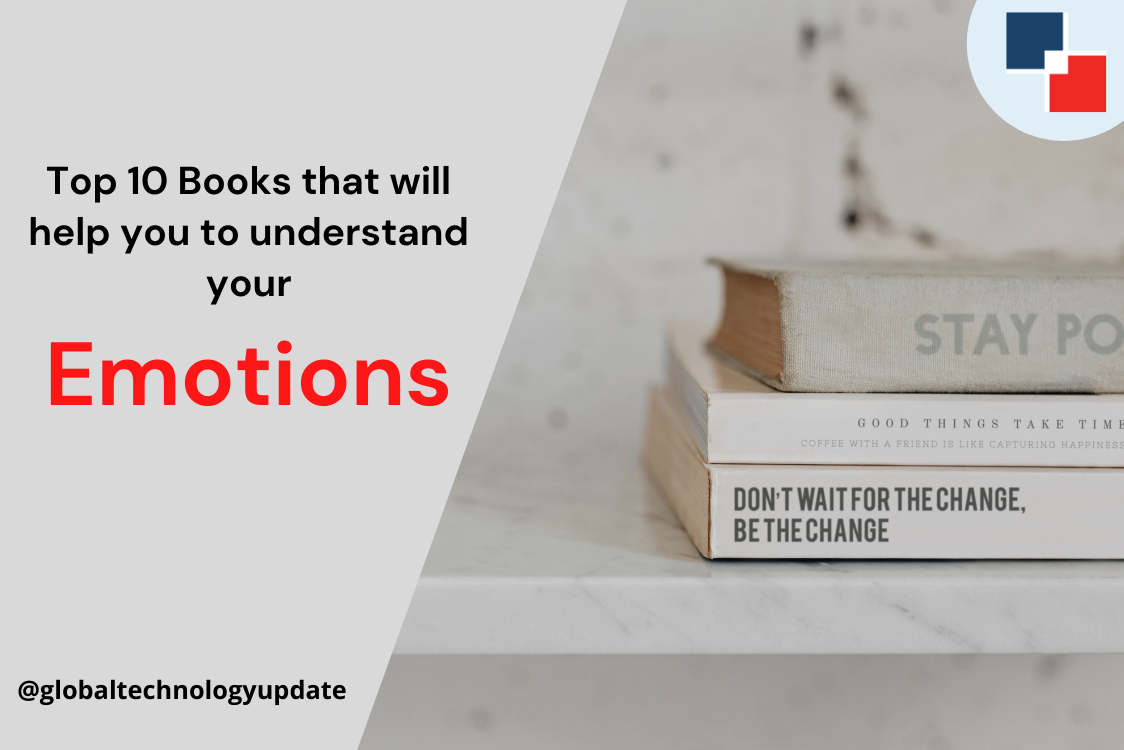“Books don’t change People, Paragraphs Do, Sometimes Even Sentences.” - John Piper
Have you ever said something that you later regretted because you were angry? Do you allow fear to prevent you from taking risks that could benefit you? Is that true? If so, you’re not alone. Here, we are discussing the top 10 books that will help you to understand your emotions.
Emotions are extremely powerful. Sometimes it is tough to deal with your emotions. Your mood dictates how you interact with others, how much money you spend, how you approach difficulties, and how you spend your time.
Nobody wants to experience sadness, embarrassment, discouragement, hurt, grief, or anger. However, ignoring your emotions is not good for your health. Your emotions are communicating with you. There is more harm to your body and well-being if you try to stop them.
How to control your mood
Our emotions enable us to comprehend, connect with, and interact with others as well as with ourselves. Emotions inform us when we should lend support to a buddy, stand up for ourselves, or exit a situation. Feeling our emotions is part of how we stay alive and can help us live a more fulfilled life.
Here are three strategies for gaining greater control over your emotions:
-
Express Your Emotions
You should keep in mind that anger sometimes hides emotions that feel weak, like shame or embarrassment. So pay attention to what’s going on inside your mind.
Put a name to your emotions. Keep in mind that you can experience a slew of feelings at the same time, such as anxiety, frustration, and impatience.
By putting a name to your emotions, you can relieve much of the pain. Additionally, it might assist you in keeping a close eye on how those emotions are likely to influence your choices.
-
Change the way you think
Your emotions have an impact on how you interpret situations. If you’re worried and receive an email from your boss requesting an immediate meeting, you may assume you’re about to be fired. If you’re feeling good when you get that same email, you might assume you’ll be promoted or praised for a job well done.
Take a moment to consider the emotional prism through which you are perceiving the world. Then, rearrange your thoughts to arrive at a more accurate perspective.
If you find yourself concentrating on unpleasant thoughts, it may be necessary to shift the focus of your attention. A little physical activity, like going for a walk or cleaning your desk, can assist you in ceasing to worry.
-
Participate in a Mood-Boosting Activity
When you’re in a bad mood, you’re more inclined to engage in behaviors that support your mood. Isolating yourself, compulsively scrolling through your phone, or moaning to those around you are just a few of the common “go-to bad mood behaviors” you could engage in when you’re feeling down.
However, such things will keep you attached to your current situation. If you want to feel better, you must take good action. Consider the activities you engage in when you are joyful. While you do those things when you’re in a poor mood, you’ll start to feel better.
Books You Must Read to Improve Your Emotional Intelligence
Healing Your Emotional Self
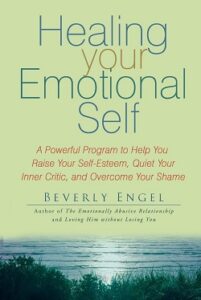
Healing Your Emotional Self: A Powerful Program to Help You Raise Your Self-Esteem, Quiet Your Inner Critic, and Overcome Your Shame offers a really good overview of how big of an impact parents have on raising emotionally healthy children.
This book talks about how parents who do things like abandon, neglect, or overprotect their kids can hurt their kids. It also talks about what kind of damage these actions can cause. Additionally, it has numerous excellent ideas and exercises for emotionally healing yourself if you were raised by violent parents.
Living Beyond Your Feelings
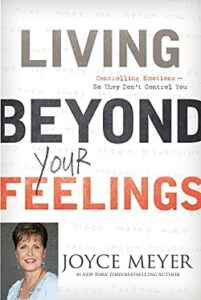
In this book, Joyce Meyer blends the wisdom of the Bible with the latest psychological research and discusses the 4 personality types and their influence on one’s outlook, the impact of stress on physical and emotional health, the power of memories, the influence of words on emotions, anger & resentment, sadness, loss & grief, fear, guilt & regret, the power of replacing reactions with pro-actions, and the benefits of happiness.
Living Beyond Your Feelings will enable you to control those fickle feelings and…
- Make decisions based on wisdom, not feelings
- Understand how personality triggers different emotions
- Shed guilt from your past or fear of your future
- Deal with anger, depression, and loss
- Cultivate good emotions and stay in balance
Working With Emotional Intelligence
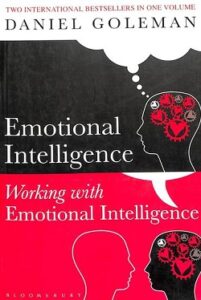
Working with Emotional Intelligence is a work of art that sheds light on the issues surrounding organizational inefficiencies, lack of ambition, and so forth. As such, we heartily suggest this book to anyone in business who desires prosperity.
Emotional intelligence is necessary for the development of emotional competence. According to Goleman, there are twenty-five learnable emotional abilities. He categorizes them into five categories, three of which are referred to as “personal skills” and two of which are referred to as “social competencies.”
Self-awareness is the first personal category; self-regulation (managing urges) is the second, and motivation is the third. The first social category is empathy (the ability to understand the feelings of others), whereas the second social category is social skills (the ability to elicit cooperative responses from others).
Thinking, Fast and Slow
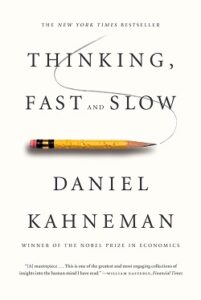
Thinking Fast And Slow shows how two opposing systems in your brain are continuously fighting for control of your behavior and actions and explains the numerous ways in which this results in memory, judgment, and decision-making problems, as well as what you can do about it.
Here are three useful lessons for understanding what’s going on up there:
- Two systems in your mind control your conduct — one conscious and one automatic.
- Your brain is lazy, preventing you from harnessing the full potential of your intelligence.
- When making financial decisions, leave your emotions at the door.
Calming the Emotional Storm
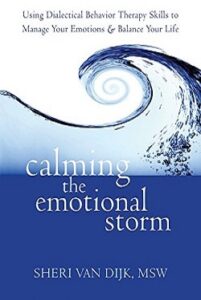
When you struggle with emotion management, it can appear as though your entire life is out of control. This book provides practical and easy-to-implement strategies for efficiently managing emotions.
This book is not technical at all, despite the fact that it is based on dialectical behavior therapy (DBT). Indeed, it is so reader-friendly, with numerous examples, that anyone may readily grasp the concepts.
If you struggle to cope with strong emotions like anger, hurt, grief, or worry, this book is for you. In addition to behavioral strategies, the author incorporates mindfulness practices to assist you in accepting and letting go of your feelings.
A Whole New Mind: Why Right-Brainers Will Rule the Future
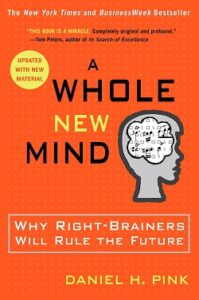
The future belongs to a different type of individual with a different kind of mind—creative, right-brained thinkers whose abilities will be critical for career and personal success.
Daniel Pink explains why creative thinking will be critical to our ability to compete in a global market in his intriguing and inspiring book, A Whole New Mind: Why Right-Brainers Will Rule the Future.
Pink argues why right-brained aptitudes will be indispensable in the future by conducting a courageous examination of the most serious economic and corporate concerns of our time—the impact of globalization, social transformations, automation, and outsourcing.
The Sedona Method
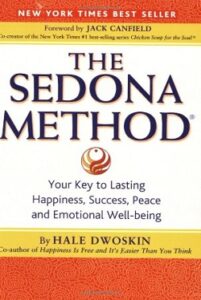
The Sedona Method is a straightforward technique for letting go of negative emotions, attitudes, and beliefs. It’s a series of questions to ask yourself while you’re experiencing strong emotions or confronting a problem in your life.
Do not be fooled by the method’s simplicity. It is quite effective, with immediate results. However, to maximize the benefits of this strategy, it is recommended that you practice the releasing technique daily until it becomes a habit and second nature to you.
This book is intended to be used in conjunction with the author’s audio course and live lectures. While the book can be read independently, it is most beneficial when combined with listening to the lectures. However, if you’re not prepared to invest heavily, the book is sufficient.
Mind and Emotions
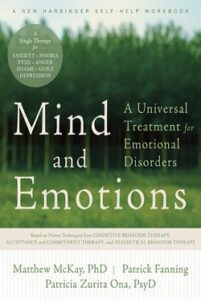
Mind and Emotions is a new treatment program for all types of emotional disorders. It helps you figure out which of the seven bad coping styles is keeping you stuck in a cycle of emotional pain.
Treating the root cause of all of your emotional problems at once will help you deal with things like anxiety, anger, shame, and depression without having to work on them one by one.
This workbook is based on proven skills from cognitive behavioral therapy, acceptance and commitment therapy, and dialectical behavior therapy. It shows you how to deal with unpleasant feelings in effective and productive ways.
Don’t Let Your Emotions Run Your Life
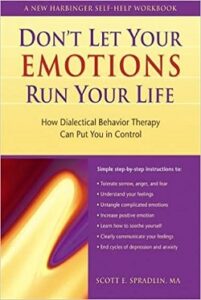
This book uses the power of dialectical behavior therapy (DBT) to help you gain control of your emotions.
Through information and exercises, you will be able to figure out and understand your own way of reacting to emotions. Additionally, you will learn effective skills for emotional control and coping with emotionally charged circumstances.
Learning to control difficult emotions enables you to coexist happily with them. This book is especially beneficial for individuals who are very reactive emotionally and struggle with the intensity of emotions.
Why Do I Do That?
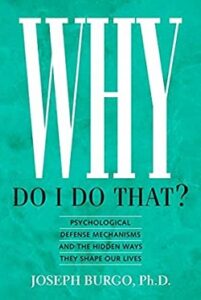
This book explains psychological defensive systems and why we react the way we do. It is written for anyone seeking both help and understanding.
The exercises help the reader figure out which of his or her own defense mechanisms are at work. The remainder of the book provides information and suggestions for deactivating those defenses and more successfully coping with the underlying unconscious feelings.
This is not your normal self-help book, as it makes no use of behavioral methods. Rather than that, it is a voyage of self-discovery and understanding of the internal elements that influence one’s life.
Mind over Mood
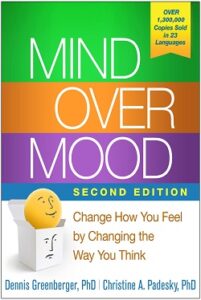
With far over a million copies sold, this book must be doing something right! It is based on the cognitive-behavioral therapy (CBT) method, which is a popular technique among therapists. Simply described, cognitive behavioral therapy (CBT) is the process of relearning potentially harmful and destructive behaviors.
Mind Over Mood is a program that teaches participants how to recognize and manage emotional pain, notably anxiety, depression, and poor self-esteem (among others). The book suggests that by knowing how these negative emotions develop, you may effectively counteract them before they take hold.
Wrapping up
Control of our emotions is a critical topic in the self-help world.
As a result, there are various programs available to help individuals improve their psychological self-regulation. If you’re frequently overwhelmed by your thoughts and feelings, it’s critical to practice using these tools and approaches.
If there is something you wish to learn more about, one of the texts listed above should prove beneficial.

